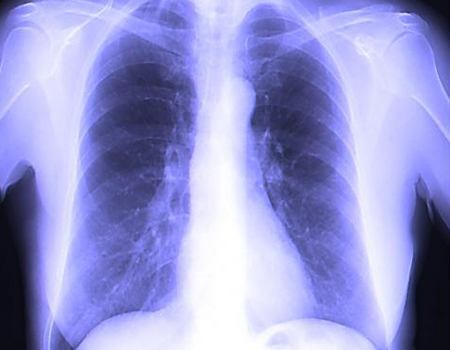Diseases

Effects of exposure on fetus:
In embryonic period, causes blindness and deafness; in first and second trimesters, causes brain damage.
Preventive measures:
Immunization before becoming pregnant.
Effects of exposure on fetus:
Brain damage, loss of vision, intellectual disabilities.
Preventive measures:
Avoid eating undercooked meat and handling cat feces, garden dirt during pregnancy.
Effects of exposure on fetus:
May impair brain functioning.
Preventive measures:
Immunization of all children and adults.
Effects of exposure on fetus:
Baby is born with syphilis, which, untreated, leads to brain and bone damage and eventual death.
Preventive measures:
Early prenatal diagnosis and treatment with antibiotics.
Effects of exposure on fetus:
Virus may be transmitted to baby. Without treatment, illness and death are likely during childhood.
Preventive measures:
Prenatal drugs and cesarean birth make HIV transmission rare.
Effects of exposure on fetus:
Not usually harmful during pregnancy but may cause blindness and infections if transmitted during birth.
Preventive measures:
Early diagnosis and treatment; if necessary, cesarean section, treatment of newborn.
Effects of exposure on fetus:
May cause premature labor, which increases vulnerability to brain damage.
Preventive measures:
Good, inexpensive medical care before pregnancy.
Pollutants

Effects of exposure on fetus:
May cause spontaneous abortion, preterm labor, and brain damage.
Preventive measures:
May be harmless in small doses, but pregnant women should avoid exposure, such as drinking well water, eating unwashed fruits or vegetables, using chemicals, eating fish from polluted waters.
Radiation

Effects of exposure on fetus:
May cause small brains (microcephaly) and intellectual disabilities. Background radiation probably harmless.
Preventive measures:
Sonograms, not X-rays, during pregnancy. Pregnant women who work directly with radiation need special protection.
Social and Behavioral Factors

Effects of exposure on fetus:
May cause cleft lip or cleft palate, spontaneous abortion, or preterm labor.
Preventive measures:
Adequate relaxation, rest, and sleep; reduce intensity of employment and seek help from spouse, family members, or your doctor if you face severe stress.
Effects of exposure on fetus:
hen severe, interferes with conception, implantation, normal fetal development.
Preventive measures:
Eat a balanced diet, normal weight before pregnancy, gain 25–35 lbs (10–15 kg) during pregnancy.
Effects of exposure on fetus:
Can harm fetal growth if it interferes with woman’s sleep, digestion, or nutrition.
Preventive measures:
Regular, moderate exercise is healthy. Can harm fetal growth if it interferes with woman’s sleep, digestion, or nutrition.
Medicinal Drugs

Effects of exposure on fetus:
Can cause heart abnormalities.
Preventive measures:
Avoid all medicines, whether prescription or over-the-counter, during pregnancy unless given by a medical professional who knows recent research on teratogens.
Effects of exposure on fetus:
Can harm teeth
Preventive measures:
Avoid all medicines, whether prescription or over-the-counter, during pregnancy unless given by a medical professional who knows recent research on teratogens.
Can cause limb deformities.
Preventive measures:
Avoid all medicines, whether prescription or over-the-counter, during pregnancy unless given by a medical professional who knows recent research on teratogens.
Effects of exposure on fetus:
Can cause deafness
Preventive measures:
EAvoid all medicines, whether prescription or over-the-counter, during pregnancy unless given by a medical professional who knows recent research on teratogens.
Effects of exposure on fetus:
Can harm digestive organs.
Preventive measures:
Avoid all medicines, whether prescription or over-the-counter, during pregnancy unless given by a medical professional who knows recent research on teratogens.
Effects of exposure on fetus:
Can affect brain development.
Preventive measures:
Avoid all medicines, whether prescription or over-the-counter, during pregnancy unless given by a medical professional who knows recent research on teratogens.
Effects of exposure on fetus:
Can stop ear and limb formation.
Preventive measures:
Avoid all medicines, whether prescription or over-the-counter, during pregnancy unless given by a medical professional who knows recent research on teratogens.
Psychoactive Drugs

Effects of exposure on fetus:
Normal, modest use poses no problem.
Preventive measures:
Avoid excessive use. (Note that coffee, tea, cola drinks, chocolate all contain caffeine.)
Effects of exposure on fetus:
May cause fetal alcohol syndrome (FAS) or fetal alcohol effects (FAE).
Preventive measures:
Stop or severely limit alcohol consumption; especially dangerous are three or more drinks a day or four or more drinks on one occasion.
Effects of exposure on fetus:
Reduces birthweight, increases risk of malformations of limbs and urinary tract, and may affect the baby’s lungs.
Preventive measures:
Ideally, stop smoking before pregnancy. Stopping during pregnancy also beneficial.
Effects of exposure on fetus:
Heavy exposure affects central nervous system; when smoked, may hinder fetal growth.
Preventive measures:
Avoid or strictly limit marijuana consumption
Effects of exposure on fetus:
Slows fetal growth, increases prematurity. Addicted newborns need treatment to control withdrawal.
Preventive measures:
Treatment needed before pregnancy but if already pregnant, gradual withdrawal on methadone is better than continued use of heroin.
Effects of exposure on fetus:
Slows fetal growth, increases prematurity and then learning problems.
Preventive measures:
Stop before pregnancy; if not, babies need special medical and educational attention in their early years.
Effects of exposure on fetus:
May cause abnormally small head, crossed eyes, and other indications of brain damage.
Preventive measures:
Stop before becoming pregnant; damage can occur before a woman knows she is pregnant.
*The field of toxicology advances daily. Research on new substances begins with their effects on nonhuman species, which provides suggestive (though not conclusive) evidence. This activity is a primer; it is no substitute for careful consultation with a knowledgeable professional.